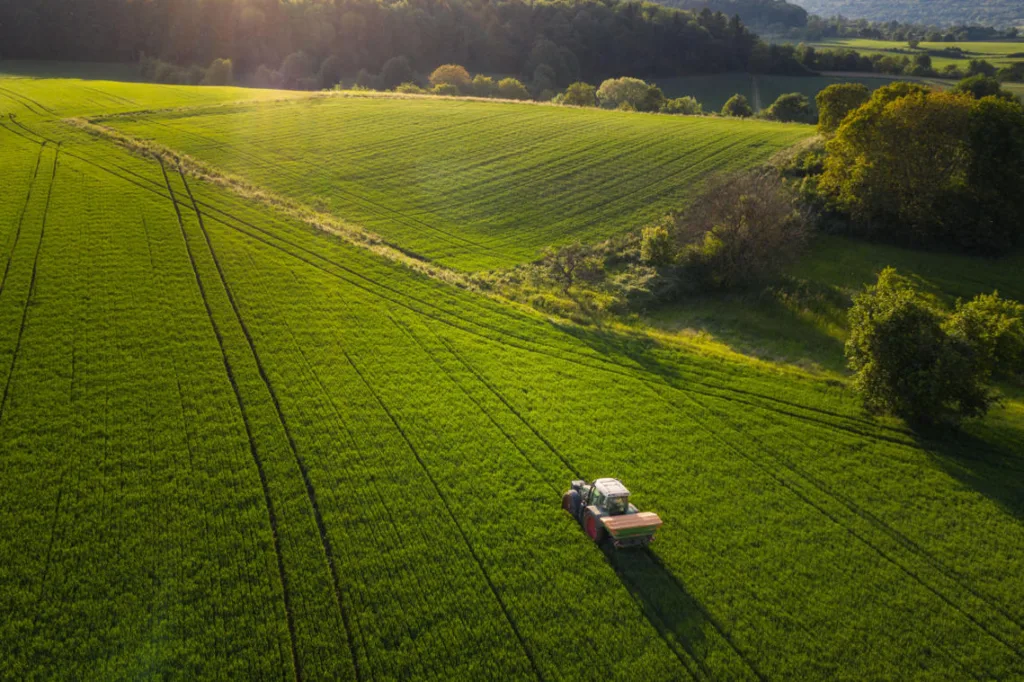Authors
Emily Grady
The world’s food systems impact people and the planet. They have the power to both nourish and degrade, generating positive and negative value for society. Food systems bring us juicy strawberries in the summer, the joy of sharing a meal with family, and the satisfaction of a full stomach each day – at least many of us. They provide people with energy and nutrients to lead fulfilling lives.
Food systems also let us down – they leave some of us hungry, unable to work and function, or over-nourished, struggling with heart disease and obesity. And while some production systems regenerate soil, many degrade it and are responsible for deforestation, climate change, loss of biodiversity, collapsing fisheries, and more.
Food and agriculture companies depend on the very resources that are being depleted – or altered – to operate. They also generate some of the conditions that lead to over-nutrition and poor health. These factors present significant risk – risk to continuing business-as-usual, risk to long-term human health and well-being, and even risk to getting next week’s meal on the table.
2020 is an important year for WBCSD’s work on food system impact valuation and risk assessment:
January 2020: At the World Economic Forum’s Annual Meeting in Davos, we are convening C-suite executives who are leading the charge on how food and agriculture companies are driving system-wide transformation from the inside out.
June 2020: At IUCN’s World Conservation Congress in June, we will demonstrate how impact valuation can drive better corporate practices for protecting both people and nature, in turn influencing both policymaking and investor decision-making.
December 2020: We will share our progress at the Tokyo 2020 Nutrition for Growth Summit, emphasizing how food system impact valuation is a key tool for making the business case to tackle over-and under-nutrition.
WBCSD’s Food & Nature and Redefining Value programs have joined forces to bring a unique and strategic lens to food system impact valuation and risk assessment. In collaboration with members, academic and NGO partners, we’re advancing how companies measure and value the impacts generated by doing business as well as their dependencies on natural, social and human capital. We are also helping companies understand how these impacts and dependencies pose critical risks and opportunities to business models, the planet and to society.
With this work, we aim to better inform decision-making and to identify, prioritize and manage risk now and into the future. The adoption of more sophisticated, forward-looking enterprise risk processes and assessment is a precursor to better management of ESG risks and opportunities, and a significant lever to drive food system transformation, advancing the Sustainable Development Goals and the Paris Climate Agreement as well as halting nature loss.
Our new report on Dynamic Enterprise Risk Assessment for the food and agriculture sector builds on previous guidance from WBCSD and COSO, transforming risk identification, assessment and prioritization from a two-dimensional view of impact and likelihood, to a more dynamic analysis that includes risk velocity and connectivity, capturing the inherent complexity and interconnectedness of the food system.
We are also launching a new animation called, ‘What is the value of people and nature to your business?’ It makes the case in simple terms for driving food system transformation through science-based approaches to measurement and valuation of business impacts and dependencies, influencing internal and external decision-making.
Through our True Value of Food and Enterprise Risk Management work, WBCSD is helping to evolve and mature our collective understanding of risk and value in the food system. We are looking to drive the adoption of new practices to protect value and stimulate healthy and sustainable food and agriculture outcomes for the long term.
This article was co-written by Emily Grady, Manager, Food Reform for Sustainability and Health (FReSH) and Matt Watkins, Manager, Redefining Value at WBCSD
WBCSD news articles and insights may be republished in accordance with the Creative Commons Attribution-NonCommercial-NoDerivatives 4.0 International Public License, and in accordance with our Privacy Policy. All Content must be featured with due credits.
Related
Content

WBCSD and AICPA & CIMA publish a new Integrated Performance Management framework to drive strategy performance and engage workforces
26 October, 2023

The future of food – How Kraft Heinz is working toward and contributing to a more sustainable food system
17 October, 2023

WBCSD joins the Nutrient Density Alliance
13 October, 2023

